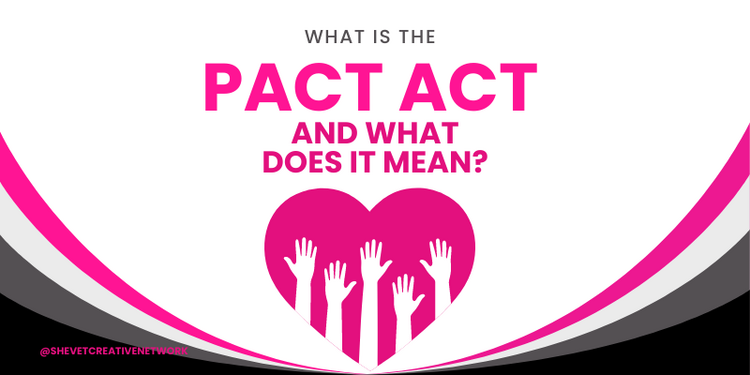
The PACT Act and Your VA Benefits: What Women Veterans Need to Know for Health Care and Disability Claims
The passing of the Sergeant First Class Heath Robinson Honoring Our Promise to Address Comprehensive Toxics (PACT) Act in August 2022 has expanded VA benefits for all veterans exposed to toxic substances. This new law is especially important for women veterans regarding health care eligibility, disability compensation, and other services from the VA.
This in-depth guide will explain the key provisions of the PACT Act that impact women veterans and their families. It covers:
- New presumptive conditions for burn pit and toxic exposures
- Expanded VA health care eligibility
- Disability compensation for new illnesses
- Toxic exposure screenings and care
- Reproductive health services
- Bereavement counseling for survivors
- Removal of barriers to VA benefits access
- How to take action under the PACT Act
Read on to learn what women veterans need to know to access the care and compensation they’ve earned through military service.
New Presumptive Conditions for Toxic Exposures
A major part of the PACT Act is the expansion of "presumptive conditions" by the VA. Presumptive conditions are illnesses that are automatically assumed to be caused by toxic exposures during military service.
Veterans with presumptive conditions do not have to try to prove their illness was related to a toxic exposure. This makes it much easier to qualify for VA health care and disability compensation if you develop certain diseases after exposure to burn pits, Agent Orange, or other toxics.
For women veterans, the addition of over 20 new presumptive conditions is very significant. The PACT Act adds several types of respiratory cancer, myeloma, immune system cancers, brain cancer, and other malignancies to the presumptive list for burn pits and airborne hazards.
It also adds hypertension as a presumptive condition for Agent Orange exposure. Studies have shown female veterans may have higher rates of cancer and hypertension compared to non-exposed women.
Other Conditions Now Presumptive for Toxic Exposures:
- Asthma
- Chronic bronchitis
- Chronic obstructive pulmonary disease (COPD)
- Constrictive bronchiolitis
- Emphysema
- Granulomatous disease
- Interstitial lung disease
- Pleuritis
- Pulmonary fibrosis
- Sarcoidosis
This expansion will help generations of women veterans get care and compensation for lasting health consequences of toxic exposures without having to fight to prove causation.
Eligibility Expansion for VA Health Care
Previously, veterans had to prove their illness was caused by service to receive VA health care for toxic exposure conditions. The PACT Act removes this requirement.
Now any veteran who served in an area known for toxic exposure can access VA health care for any condition, even if not yet recognized as related to the exposure. For women veterans, this provides much greater access to VA’s world-class medical services.
You may qualify for VA health care if you served in:
- Southwest Asia (certain areas at certain times)
- Certain overseas locations
- Areas with burn pits or other documented toxic exposure risk
This encompasses a wide range of deployments and duty stations. Veterans also now get a toxic exposure screening when enrolling in VA health care.
With the PACT Act, you can utilize VA for:
- General preventive care and wellness services
- Cancer screenings like mammograms and cervical exams
- Treatment for newly presumptive conditions
- Other illnesses possibly related to toxic exposure
- Mental healthcare, counseling, and support groups
VA health care can provide continuity of treatment from clinicians familiar with toxic exposures. Never assume you don’t qualify – reach out to apply.
Disability Compensation for New Presumptive Conditions
In addition to health care, veterans can now file disability claims for the new PACT Act presumptive conditions. If you’re a woman veteran diagnosed with one of these cancers, respiratory diseases, or other toxic exposure illnesses, you may be eligible for tax-free VA disability benefits.
The compensation amount depends on your disability rating level assessed by the VA. Presumptive conditions often have high approval rates, since causation is assumed. But be sure to submit all required medical records, nexus letters, and other proof to support your claim.
Partnering with an accredited veteran service officer or a VA-recognized VSO can significantly strengthen your claim. Consider reapplying if you were previously denied for an illness now recognized as presumptive for toxic exposures.
Toxic Exposure Screening and Specialized Care
Under the PACT Act, every VA health facility must provide toxic exposure screenings. Women veterans concerned about hazardous exposures can get checked for related symptoms and conditions.
Based on your screening results, you may be referred for:
- Diagnostic testing like pulmonary function tests or cancer screening exams to identify related health issues
- Enrollment in the Airborne Hazards and Open Burn Pit Registry to document your exposure history
- Referrals to specialty VA treatment programs for toxic exposure illnesses and cancers
- Ongoing monitoring, prevention and wellness care from VA providers trained in post-exposure care
Proactively screening for conditions linked to your individual exposure profile allows for earlier diagnosis, more customized treatment plans, and better outcomes. Do not wait until you are seriously ill to get checked out.
Reproductive Health Services for Women Veterans
Many women veterans have long worried about how dioxin and other military toxic exposures impacted their reproductive health. The PACT Act mandates research on this critical issue and expands access to related services through VA health care.
Women veterans who served in Vietnam, Thailand, and certain other high-risk areas can now receive counseling and treatment for conditions that may be linked to toxic exposures, including:
- Infertility
- Miscarriages and recurrent pregnancy loss
- Birth defects in offspring
- Early onset menopause before age 40
- Other reproductive health disorders
This care can improve quality of life for women veterans who want to start or expand their families after service. Be your own best health advocate and bring up any reproductive concerns with your VA provider.
Bereavement Counseling for Survivors
Losing a loved one to an illness caused by toxic military exposures can negatively impact mental health. The PACT Act provides bereavement counseling services to the surviving spouses, children, parents and siblings of veterans who died from exposure-related diseases.
As a woman veteran, this means your family has access to grief counseling, peer support groups, and other resources at VA facilities if your husband or partner passes away from toxic exposure complications. Seeking support during the mourning process can help bring comfort and healing.
Removing Barriers to VA Benefits Access
The PACT Act aims to remove hurdles that previously prevented some veterans from accessing their earned VA benefits for toxic exposure conditions. This levels the playing field.
For example, the law:
- Removes the need to prove specific location/dates of toxic exposure for presumptive illnesses
- Requires VA give veterans the benefit of the doubt when deciding claims
- Extends the timeline for appealing denied claims from 1 year to 2 years
- Expands presumptive status to Navy veterans who served offshore Vietnam
- Directs VA to actively contact/inform veterans of potential benefits
These changes help fix an unjust system and open doors for generations of women veterans.
Taking Action: Utilizing Your PACT Act Benefits
While a huge step forward, the PACT Act does not automatically grant benefits. Women veterans must still take action to access their services. Here are steps to take at your VA facility:
- Talk to your provider or service officer about getting registered for the toxic exposure screening program to document your risk profile.
- File a disability claim if diagnosed with a presumptive condition like cancer or hypertension. Submit medical evidence to boost approval chances.
- If you were previously denied VA benefits for a now-covered condition, consider reapplying under the PACT Act presumptions.
- Discuss utilizing VA preventive care, cancer screening, mental health services, and other wellness programs if you served where toxic exposures occurred.
- Ask your VA provider about reproductive health or infertility services if you have related concerns after toxic exposure during service.
- Connect with PACT Act support groups and women veterans networks to share information and resources.
The passing of the PACT Act finally provides real solutions for generations of women veterans negatively impacted by toxic military exposures. But you must take the first step to apply for your benefits. Reach out today to access the world-class care you’ve earned and deserve.
This page will help answer your questions about what the PACT Act means for you or your loved ones. You can also call us at 800-698-2411 (TTY: 711). And you can file a claim for PACT Act-related disability compensation or apply for VA health care now.
.png)


